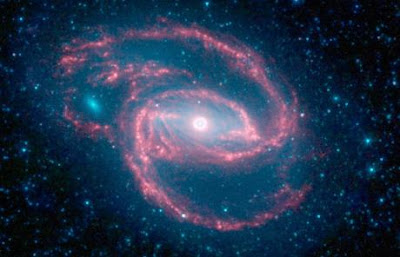
A Black hole is a region of space where the gravitational pull is so strong that absolutely nothing can escape it. Not even light! Because light cannot escape it, there is no actual photos of one and quite literally, they are invisible.
Many scientists believe that there are millions of black holes in the universe and in some cases there are even what we call "Supermassive Black Holes". The supermassive black holes lie at the center of galaxies and in fact there is even one at the center of our own galaxy, the Milky Way.
Contrary to popular myth, the black hole is not a giant hole in space that sucks everything towards it and eventually into it. Around each black hole is a surface known as the Event Horizon. Around the Event Horizon, is another region known as the Schwarzchild Radius. One would have to cross into the Schwarzchild Radius in order to be caught up in the gravitational pull of a black hole.
To get an idea of how small this region is, if a black hole was to be the same size as our Sun, the Schwarzchild Radius would be less than 2 miles from the surface of the black hole.
Where do Black Holes come from?
When a star is burning, it is pushing its fuel outwards as it burns. When it runs out of fuel, it can explode into what is known as a Supernova. If a star that is more massive than 3 of our suns was to become a Supernova, it would leave a remnant behind that is completely empty of space. With the gravitational pull then being at zero, it would collapse in upon itself instantly, creating a black hole.
Imagine throwing a rock into water. As the rock passes into the water, for an instant, it leaves behind it an empty space. Instantly the water collapses in upon that empty space to fill that void. When a star explodes, it leaves the same kind of void and space instantly collapses to fill it. When the star is massive enough, the collapse is so powerful it creates a gravitational pull that is so powerful it becomes a black hole.

